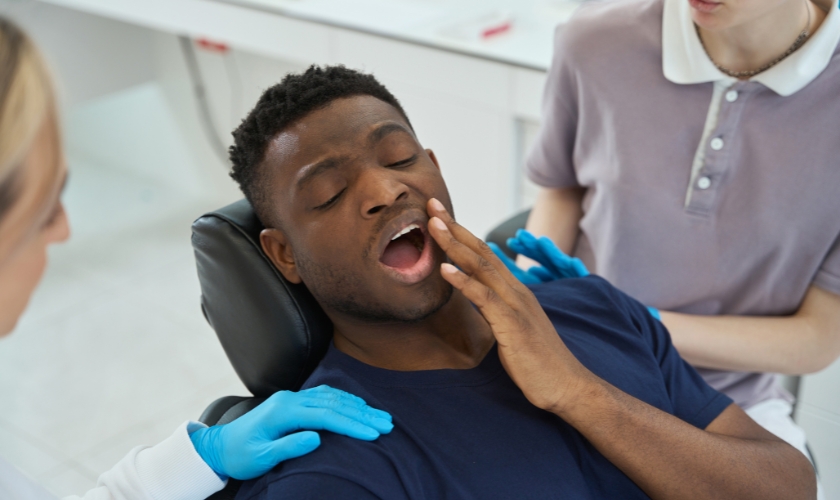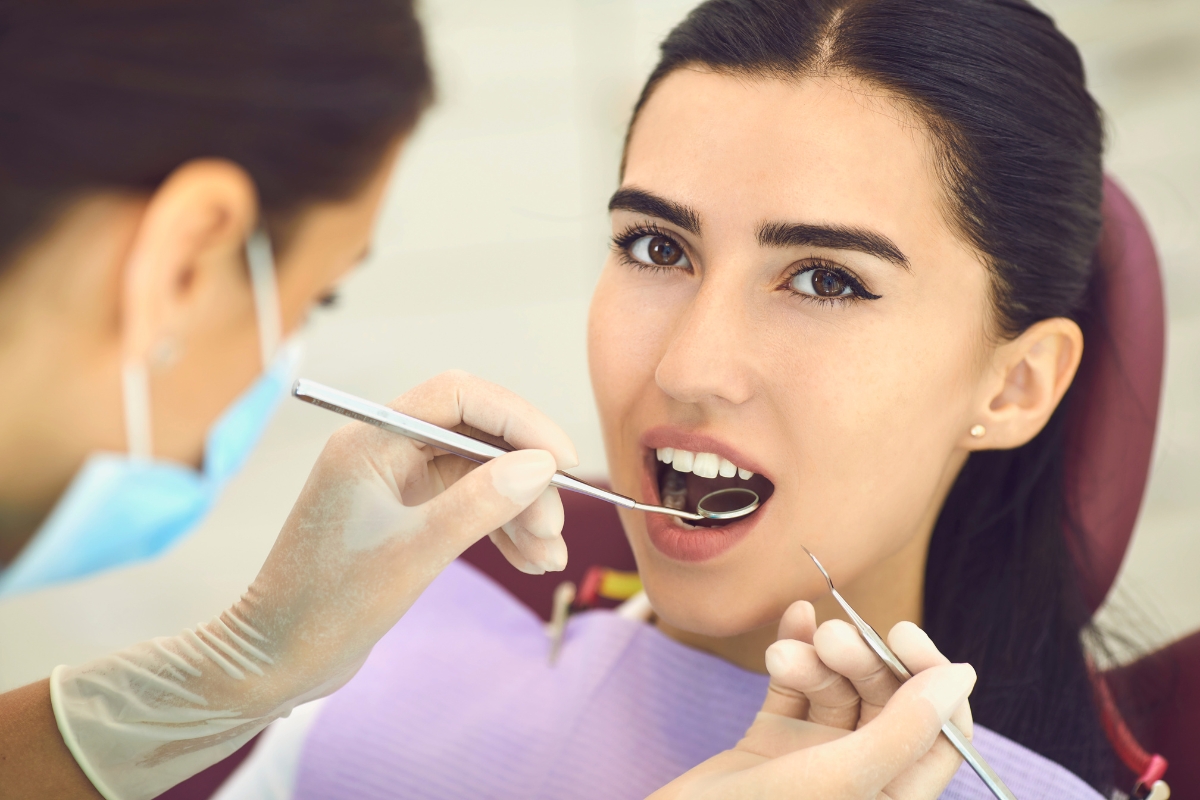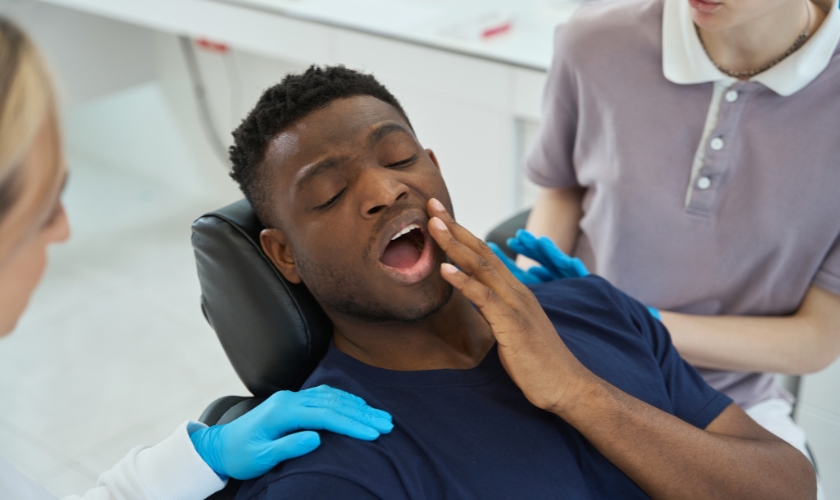
Toothache is a pain nobody enjoys. But when the throbbing discomfort isn’t confined to your tooth and spreads across your face, it can be downright debilitating. This radiating pain can leave you wondering, “Why does my toothache hurt my face?” Here’s a breakdown of the five most common reasons why your toothache might be throwing a facial pain party, along with tips for finding relief.
The Sneaky Culprits Behind Facial Toothaches
Tooth Decay and Cavities
Often the first suspect, tooth decay and cavities are major culprits behind radiating toothaches. When bacteria erode your tooth enamel, they penetrate into the inner layers of the tooth, which contain nerves. This irritation causes intense pain that can radiate to your jaw, cheek, or even ear. Toothache treatment in Newton, KS, involves addressing the decayed area with dental fillings to restore the tooth’s structure and alleviate discomfort.
- Symptoms: Tooth pain, sensitivity to hot, cold, or sweet foods, and visible holes or pits in the teeth.
Gum illness
Gum disease, or Gum disease, also referred to as periodontal disease, is an infection that targets the tissues surrounding and supporting your teeth. In its early stages (gingivitis), it might cause swollen gums and mild discomfort. However, as the infection progresses (periodontitis), it damages the bone supporting your teeth, leading to toothaches and radiating pain in your jaw or face.
- Symptoms: Swollen, red, or bleeding gums, bad breath, loose teeth, receding gums.
Dental Abscess
An abscessed tooth is a dental emergency marked by a collection of pus at the root of the tooth. This infection can cause intense pain that radiates throughout your face, along with other unpleasant symptoms like facial swelling and fever.
- Symptoms: Throbbing toothache, sensitivity to pressure, facial swelling, fever, and bad breath.
Impacted Wisdom Teeth
Wisdom teeth, those late bloomers in the back of your mouth, can sometimes erupt partially or become completely impacted (stuck) under the gum line. This impaction can irritate nearby nerves and cause radiating pain in the jaw, face, or even ear. So, the highly professional toothache treatment in Newton, KS, may involve extraction to prevent further complications like infection or damage to neighboring teeth.
- Symptoms: Pain and swelling around the jaw, difficulty Chewing or mouth opening, accompanied by bad breath, and an unpleasant taste in the mouth.
Temporomandibular Joint (TMJ) Disorders
While not directly related to a tooth itself, TMJ disorders can sometimes mimic toothaches and cause radiating facial pain. The TMJ joint connects your jawbone to your skull and allows for movement during chewing and speaking. When this joint becomes inflamed or dysfunctional, it can manifest as facial pain, headaches, and even difficulty opening your mouth wide.
- Symptoms: Facial pain, earaches, headaches, jaw clicking or popping, difficulty chewing.
Find Relief from the Facial Toothache
Self-Care Measures: These can provide temporary relief:
- Apply a cold compress to the outside of your cheek to reduce swelling and pain.
- Gargle with warm salt water to remove irritants.
- Non-prescribed painkillers like ibuprofen or acetaminophen can offer temporary relief. (Always follow dosage instructions)
Seek Professional Dental Care: Early diagnosis and treatment are key! Your Newton dentist can precisely identify the cause of your toothache and radiating pain and recommend the appropriate treatment plan. This may involve procedures like fillings, root canals, gum disease treatment, wisdom tooth extraction, or addressing TMJ issues.
In the end, a radiating toothache can be a sign of underlying dental problems. Knowing the common causes & seeking professional assistance for toothache treatment in Newton, KS, you can avoid further complications and get your smile back to its pain-free glory. Neglecting a toothache won’t make it disappear – it might just throw a bigger pain bash in your face.
Frequently Asked Questions
Yes. Radiating pain can indicate a deeper problem requiring professional attention. It’s crucial to promptly seek professional dental care to accurately diagnose the underlying cause and receive proper treatment. Ignoring such symptoms may lead to worsening pain or complications.
While not a cure, cleaning your mouth with hot salt water and using a cold compress can offer temporary pain relief until you’re able to see a dentist for a professional diagnosis and treatment
Sometimes, yes. Sinus pain can mimic toothache pain, especially in the upper jaw. Your dentist can help differentiate between the two.
Non-prescribed painkillers like ibuprofen or acetaminophen can offer temporary relief. However, never rely solely on medication – see your dentist for diagnosis and treatment.
It’s crucial to avoid waiting for a radiating toothache to resolve on its own. Early detection and treatment are necessary to avoid escalating complications and ensure a full recovery. Ideally, you should schedule a dental appointment as soon as possible, especially if you experience additional symptoms like swelling, fever, or difficulty chewing.


